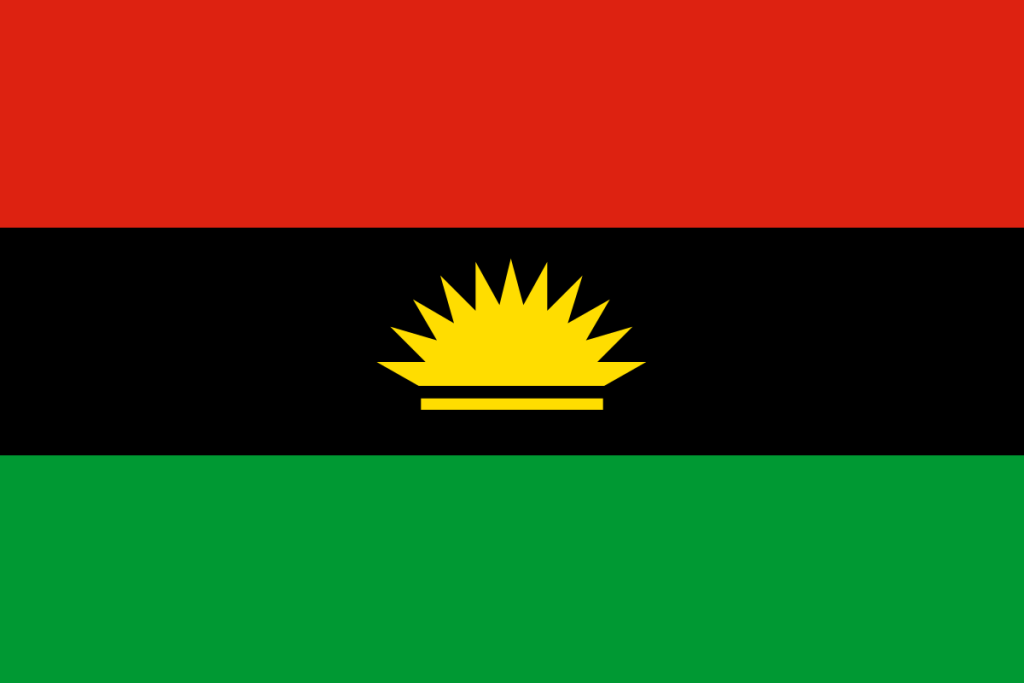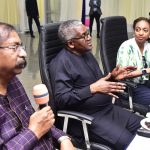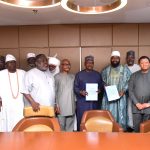IPOB at the Crossroads: Charting a Viable Pathway Forward

The Indigenous People of Biafra (IPOB) remains a potent symbol of the ongoing struggle for self-determination in Nigeria’s southeast. With its roots in historical grievances, the group has amassed a large following and become a prominent voice for millions who believe in the idea of Biafra. However, the journey from agitation to realization is a complex one, requiring more than rhetoric and mass mobilization.
To transform IPOB into a workable project, its leadership and supporters must adopt a multidimensional strategy—one grounded in political maturity, institutional development, diplomacy, and inclusiveness. As the group navigates this critical juncture, here are key pillars that could guide its evolution into a structured and legitimate force for change
A Clear Vision Beyond Independence
Secession may be the rallying cry, but a sustainable movement requires a well-defined endgame. IPOB must present a comprehensive vision of what a future Biafran state would look like. This includes outlining governance structures, economic policies, legal frameworks, and strategies for managing the region’s ethnic diversity.
A robust blueprint that addresses education, healthcare, security, civil liberties, and resource management will give the movement greater credibility and offer potential allies a clearer understanding of its aspirations.
Non-Violence as a Strategic Principle
Global history demonstrates the power of non-violent resistance. Movements that embrace peace and negotiation often garner broader support and international legitimacy. IPOB must commit to non-violence not just in rhetoric but in practice.
Constructive engagement with bodies like the African Union, ECOWAS, and the United Nations through diplomatic channels could amplify the group’s cause on the world stage. Well-trained spokespersons and diplomats must replace inflammatory rhetoric with strategic dialogue.
From Movement to Institution
To be taken seriously as a potential state actor, IPOB must begin to mirror the structure of a functioning government. This means establishing think tanks, advisory councils, and shadow ministries that deal with agriculture, education, foreign affairs, and more.
Such structures will help develop policy competence while preparing the region for self-administration. They can also attract professionals and technocrats from within and outside the country, lending the movement both brains and credibility.
Building Economic Self-Reliance
Economic viability is critical to any independence effort. IPOB should spearhead initiatives that empower local entrepreneurs, boost agricultural productivity, and foster innovation in technology and manufacturing. Special focus should be placed on youth employment and skill acquisition.
Linkages with the Igbo diaspora can also be invaluable. With the right structures in place, diaspora investments can fund community projects, infrastructure, and social services—creating a strong foundation for self-determination rooted in economic resilience.
Promoting Unity in Diversity
One of the key criticisms of IPOB is its perceived Igbo-centric agenda. The movement must address concerns from minority groups—such as the Efik, Ijaw, and Ibibio—within the proposed Biafran territory. Without their buy-in, the dream risks disintegration from within.
Inclusive language, representation in decision-making bodies, and a shared vision for all ethnicities will foster a sense of collective ownership. IPOB must become a coalition rather than a club.
De-Personalizing the Leadership
The IPOB movement has been strongly associated with its leader, Nnamdi Kanu. While he remains a pivotal figure, over-reliance on one person is a strategic weakness. A viable project must rest on institutions, not individuals.
Leadership structures should be decentralized, with clear succession planning, internal democracy, and accountability mechanisms. This approach ensures continuity and stability, especially in times of crisis.
Rebranding the IPOB Identity
IPOB’s current branding—often associated with militancy—has alienated potential sympathizers at home and abroad. A deliberate rebranding campaign is essential to reposition the movement as progressive, inclusive, and peace-driven.
This can be achieved through the media, art, cultural exhibitions, and intellectual publications that tell the Biafran story with nuance and empathy. A better image will open doors to diplomatic and civil society partnerships worldwide
Political and Legal Participation
Even while seeking secession, IPOB cannot afford to abandon Nigeria’s political space. Participating in local and national elections, either directly or indirectly, provides opportunities to influence policy and protect regional interests.
Legal advocacy is also powerful. Strategic lawsuits can challenge rights violations and discriminatory laws, generating legal precedents and public sympathy. Courts can become a battleground for legitimacy and justice.
Harnessing the Diaspora
The global Biafran diaspora is a treasure trove of human and financial capital. IPOB should formalize its diaspora engagement strategy through a centralized body that coordinates outreach, funding, and lobbying efforts.
Such efforts must be disciplined, transparent, and results-driven. Diaspora voices can influence foreign policy in their host countries and bring global attention to IPOB’s demands.
Grassroots Education and Mobilization
Lasting change begins at the grassroots. IPOB must invest in civic education that empowers local communities to understand their rights, responsibilities, and the broader goals of the movement.
Community radio, town hall meetings, and cultural programs can help spread the message. A well-informed population is the bedrock of any successful movement and acts as a safeguard against misinformation and extremist manipulation.
The Road Ahead: From Passion to Purpose
The passion behind the IPOB movement is undeniable. But passion without structure breeds chaos. If IPOB is to succeed, it must embrace a transformation—from an emotional protest movement into a credible project for statehood.
This transformation will not happen overnight. It requires introspection, discipline, and the courage to evolve. It requires building institutions, not just ideologies; cooperation, not confrontation; and vision, not violence.
The dream of Biafra is not invalid. But for that dream to have substance, IPOB must rise to meet the demands of the 21st century: diplomacy, unity, accountability, and long-term thinking. Only then can the movement truly stand the test of time—and perhaps, history.





Leave a Reply